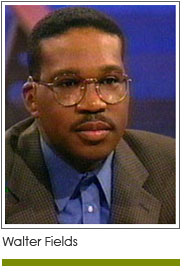 By now, you have probably heard the audio or seen the video footage of Secretary of State Hillary Clinton in Congo losing it when responding to a question posed to her by a student in the audience. The Secretary took offense when she believed the student was asking her what former President Bill Clinton thought regarding an issue of international finance. Offended that the student appeared to be disrespecting her role as the Secretary of State, and deferring to her husband on a matter of international policy, Ms. Clinton launched into an enraged retort. As it turns out, the student was seeking to find our President Obama’s position on the question he asked, and not that of former President Clinton.
By now, you have probably heard the audio or seen the video footage of Secretary of State Hillary Clinton in Congo losing it when responding to a question posed to her by a student in the audience. The Secretary took offense when she believed the student was asking her what former President Bill Clinton thought regarding an issue of international finance. Offended that the student appeared to be disrespecting her role as the Secretary of State, and deferring to her husband on a matter of international policy, Ms. Clinton launched into an enraged retort. As it turns out, the student was seeking to find our President Obama’s position on the question he asked, and not that of former President Clinton.
The student was either nervous or the question mangled in translation, but in either case he did not deserve the treatment he received from the Secretary of State. Though Ms. Clinton later shook the student’s hand upon exiting the hall, the damage was already done. If our chief ambassador cannot diplomatically handle an uncomfortable question from a student, what does that say about her demeanor in more difficult discussions the Secretary of State may have with international leaders? Ms. Clinton has demonstrated a steely resolve that has advanced her career but there have been moments when the infamous Clinton temperament has backfired. Such as the health care debacle of the Clinton White House and periods during the presidential campaign when her ambition seemed to overwhelm common sense, to cite two examples. Monday’s meltdown is another example of how this woman of tremendous talent can at times prove to be her worse enemy.
It is not uncommon for a government official to implode, particularly under the stress of travel, persistent crises and schedule. Still, as Secretary of State I would hope that Ms. Clinton would be sensitive to the setting and the historic nature of her current tour. The United States has a tortured history with sub-Saharan Africa, given the role of the trans-Atlantic slave trade in enslaving Africans who were brought in captivity by the millions to the west. So much of our nation’s past is defined by slavery that the simplest of gestures has the ability to open wounds that have never fully healed. What matters most in our relationship with Africa is respect. It is the same demand that Ms. Clinton was making upon the student when she erroneously thought he was acting patronizing toward her. Respect is a two-way street and too often, our nation has expected others to make the trip while we refuse to acknowledge them in kind. Given the degree to which race often still defines social relations in the United States, the Secretary of State, a privileged, white woman, should have been more restrained in how she responded to the question given the nature of her tour and the fact that she was a guest.
I am sure there will be some feminists who applaud Ms. Clinton’s tenacity. I tend to take the opposing view. I believe what makes the presence of a woman in a position of power that much more legitimate is when gender is defused to the point of making it irrelevant. The Secretary of State might want to take a page from President Obama’s playbook. If the President had imploded every time he was slighted because of his race, she might be President today. I cannot imagine what the response would be like if President Obama dressed down a student in public for asking a question that the President perceived to be racially insensitive. Perhaps more pointedly, could you imagine a Black African government official responding to a white university student in the United States in that manner? Black men do not have the luxury of exhibiting anger in public lest we be permanently discounted as unstable.
No, this is not a deal killer but it does demonstrate how far we have to go to develop a respectful relationship with Africa. I hope that the Secretary of State feels some remorse for her outburst and will chalk it up as a lesson learned.














